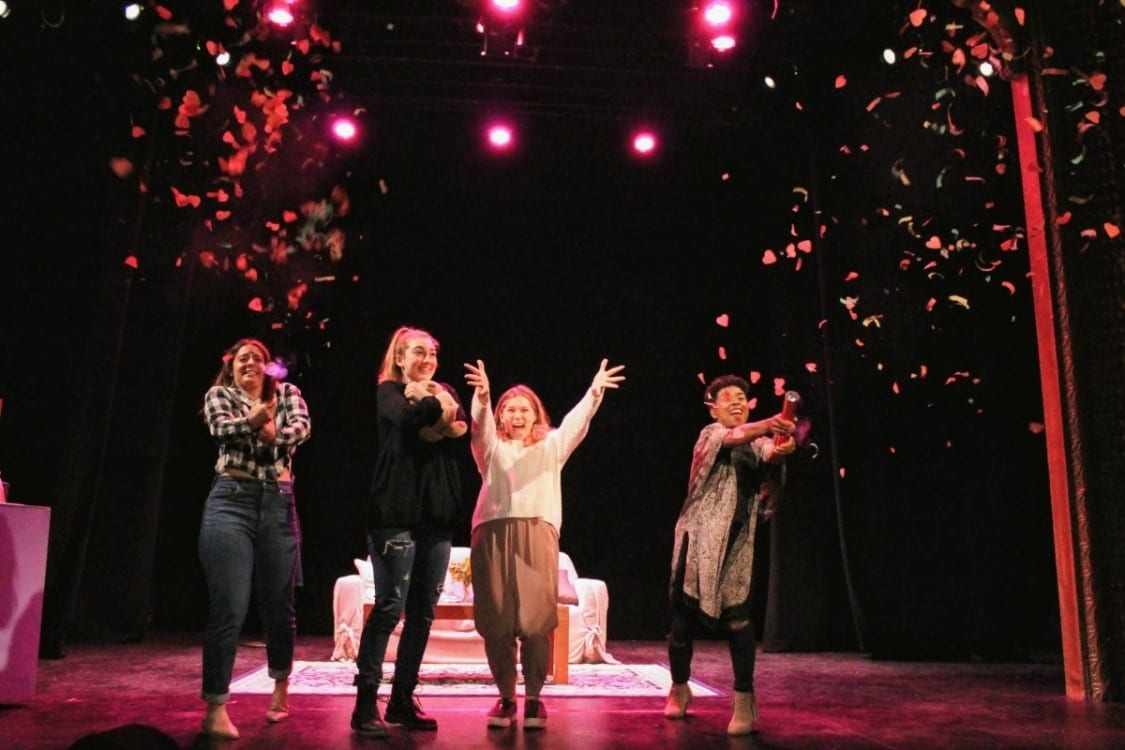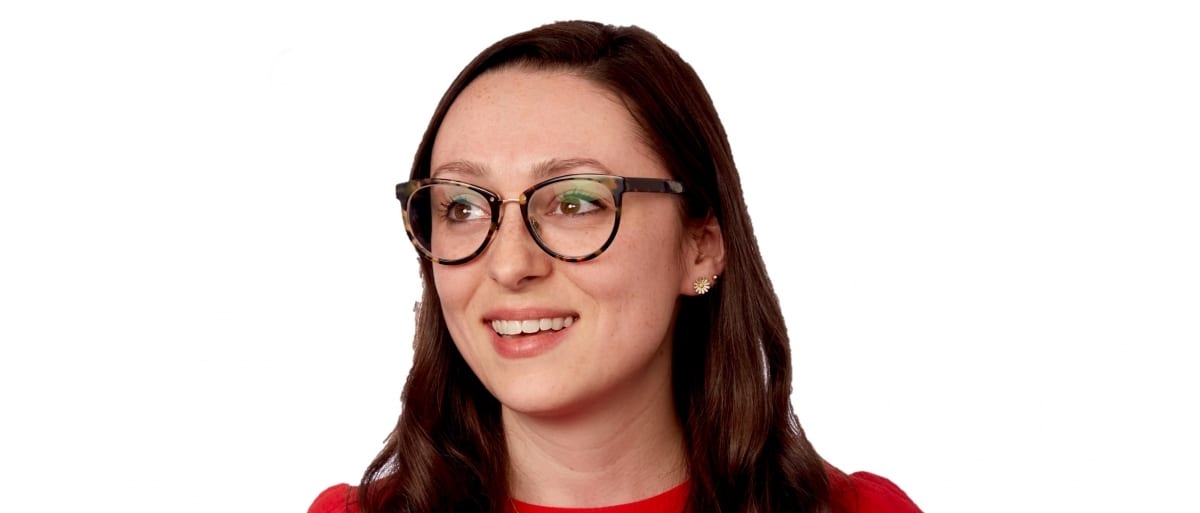With theater shutdown due to coronavirus entering into its fifth month, some organizations have now figured out how to reimagine their shows for the digital format. But what about adapting an entire summer theater festival?
This was the challenge for Danielle DeMatteo, the founder and artistic director of SheNYC: an annual festival of plays helmed by female writers, composers and directors, now with branches in Los Angeles and Atlanta as well as their home city. Between the pandemic and the heightened attention on the Black Lives Matter movement which has brought the theater industry under scrutiny for discrimination, DeMatteo has found a unique moment in which to imagine how SheNYC can continue to grow.
“I’ve always wanted to find a way to make the cities come together — the New York festival and the LA festival — and find a way to make them sort of feel more like one group rather than two separate festivals,” DeMatteo says. “And so just by chance this year, now that we’re forced to do everything online, that means people from anywhere — people from LA can watch the New York shows, people from New York can watch the LA shows, people from all over the world can watch whatever show they want. And with the addition of Atlanta as well, it is making it feel more like one big cohesive festival.”
This is not to mention that in addition to running SheNYC, DeMatteo works for a Broadway production company by day and is composing her first independent, non-commissioned show — “Queen Anne,” a musical about the life of Anne Boleyn (which DeMatteo has had in the works even before “Six” exploded onto the theater scene). Her wide breadth of work together keeps her on the pulse of both the Broadway and Off-Broadway worlds, and she said the festival reinforces what she sees as the core of theater: “making sure people are happy and feel artistically fulfilled,” a mission she carries over to all her different jobs.
The process of starting SheNYC revolved around the age-old pairing of time and money. In 2015, DeMatteo secured a grant from the Puffin Foundation to fund the inaugural festival in the summer of 2016. It just covered production expenses, leaving no funds for an accountant or lawyer, so DeMatteo taught herself enough accounting to file the festival’s government paperwork herself (it took two years to do).
The rest of the women DeMatteo initially gathered for the SheNYC team also volunteered their time over and above their day jobs, reading scripts and assisting with operations. That very same team keeps the festival alive today – with the additional (and invaluable) help of Google Spreadsheets.
“I live my life in a constant SheNYC Google Sheet. How did Shakespeare do theater without Google Docs?” DeMatteo quips.

Though the basics of operation haven’t changed, the festival has grown steadily in many ways since its inception. The first SheNYC took place in The Playroom Theater in Midtown, showing five plays selected from 85 submissions in the course of a week. Beginning in 2017, the festival moved to the larger Connelly Theatre downtown, showing eight plays in two weeks drawn from an ever-growing number of nationwide and worldwide submissions.
The geographical scope grew in response: the SheLA festival was launched in 2018 to better accommodate the interest from artists based near the West Coast. SheATL was set to have its inaugural year in Atlanta, Georgia this summer, but will now have its premiere online.
Though SheNYC’s physical expansion is being put on hold, the unique affordances of an online festival — an unlimited audience, lessened geographical barriers to entry — are unexpectedly allowing DeMatteo to fulfill her visions of uniting all branches of the organization. She has scheduled the online festivals as such, with the SheNYC and LA plays set to be streamed in conjunction from July 13 to August 2. The Atlanta festival will stream from August 27-30.
DeMatteo and the SheNYC creative team started to envision a digital festival in mid-April, officially notifying the participants in early May when the end of the shutdown proved nowhere in sight. They gave every show the option to do the digital festival at all or sit it out and wait until next year’s festival, where they’d be guaranteed a spot. Every show opted to participate digitally.
They will still get priority placement in next year’s in-person festival if theaters reopen. As such, DeMatteo sees this summer’s festival as part of a “yearlong developmental process,” with the digital production serving to help each show’s creators figure out what works and what they can improve before a full staging. DeMatteo said she could envision this being beneficial not to just SheNYC, but to small-budget theatre in general, long-term.
“We’ve been talking about internally, how can we sort of continue that developmental process,” DeMatteo says of the SheNYC team. “Maybe it’s that we accept our shows earlier a few months earlier than we already do so that we can do a staged reading of everybody’s show and have that step in the process before they go on to full production. So we might try that out in future years.
“But I also kind of love the fact that people are really embracing Zoom-style rehearsals for not only SheNYC shows, but for any writer who’s self-producing a reading or workshop or whatever. Rehearsal studios tend to be the most expensive thing that you have to spend your money on. So if we can kind of get used to this idea of doing half the rehearsals over Zoom, I think that will be a huge asset going forward, to help writers develop new work and save some money in the process.”
Cultivating a positive development process for writers has always been DeMatteo’s goal for the festival, namely because she had her own struggles. In college, she and her roommate at the time wrote and headed a few readings of a musical, which caught the eye of producers. However, the two young women ended up in a negative working environment.
“We were thrown into a room with a creative team full of all older men, we weren’t always treated super well, and at a certain point they tried to get us to sign a contract that would have given away all of our rights to our own show for no money for six years,” DeMatteo recalls. “We had to sort of use a friend-of-a-friend-of-a-friend lawyer to do some backflips to get us out of that situation. And after it was all said and done, I talked to a lot of other young women writers that I knew that found themselves in similar situations … And so I thought, how could we make a system in which this doesn’t happen anymore?” DeMatteo says she chose a festival because it requires all the participants to share resources, which saves each individual time and money and encourages positive collaboration.
Now, in the midst of the Black Lives Matter movement, she is reexamining the ways SheNYC can support female writers of color. DeMatteo expressed pride in the CreateHER program that SheNYC pioneered in conjunction with last year’s festival, which she said included many young women of color. The program is a playwriting and producing course for high school-age girls that culminates with each participant writing and producing their own short play.
DeMatteo says a big goal for next year’s festival at large, for which playwrights submit their shows this year, will be to seek out and increase script submissions from playwrights of color to ensure a diverse pool of final selections. She hopes to see the same not just in festivals and smaller theatre, but mainstream theater as well.
“I really want both SheNYC and the industry as a whole to delve into the ‘systemic’ part of systemic racism,” DeMatteo says. “If the problem is systemic, the solution has to be systemic. Shows by people of color, especially women of color, are not being produced on Broadway enough (barely at all). We need to go through every single step of the process of getting a show to Broadway — going all the way back to how we teach kids about theater in school — and figure out what goes wrong every step of the way, that leads Broadway to being an overwhelmingly white and male place. And then fix every single step.”

